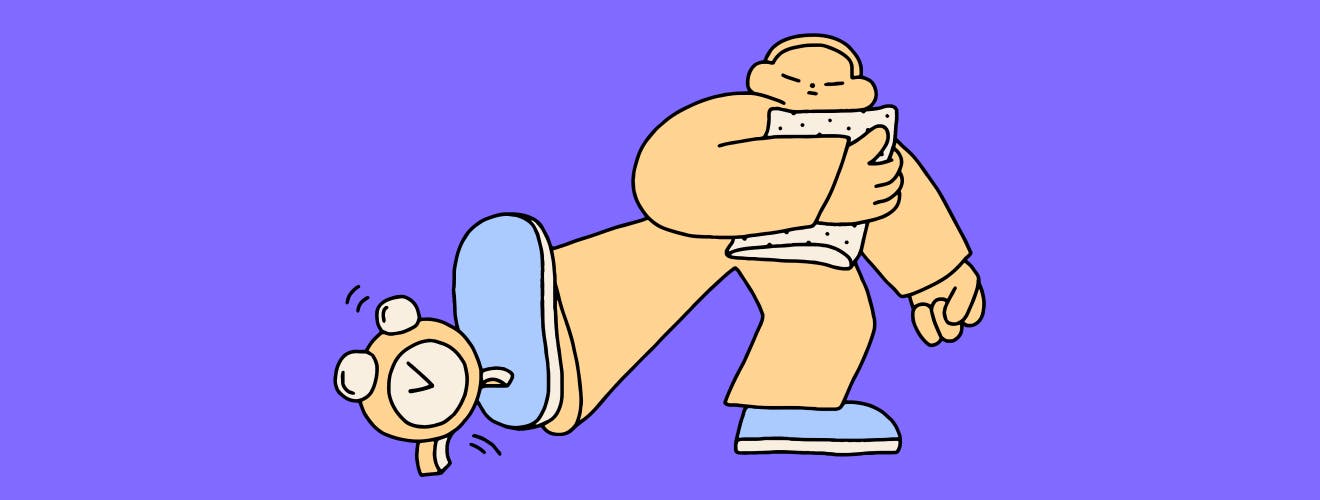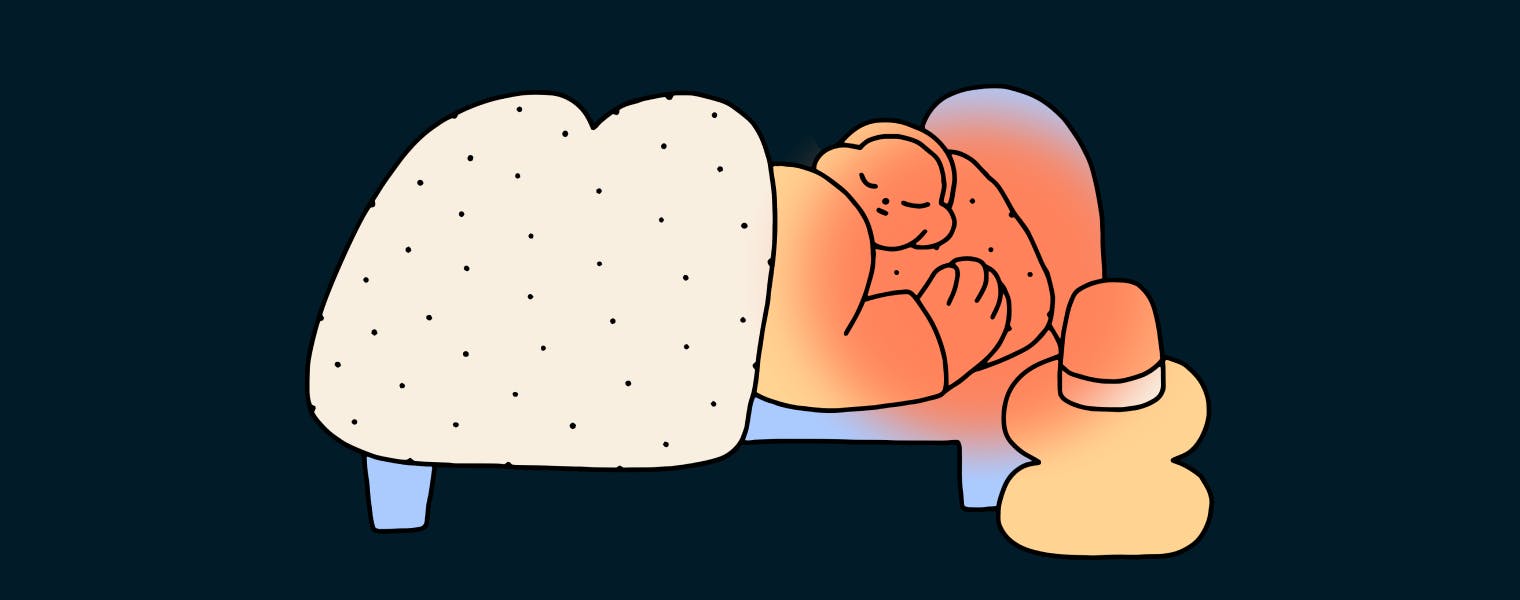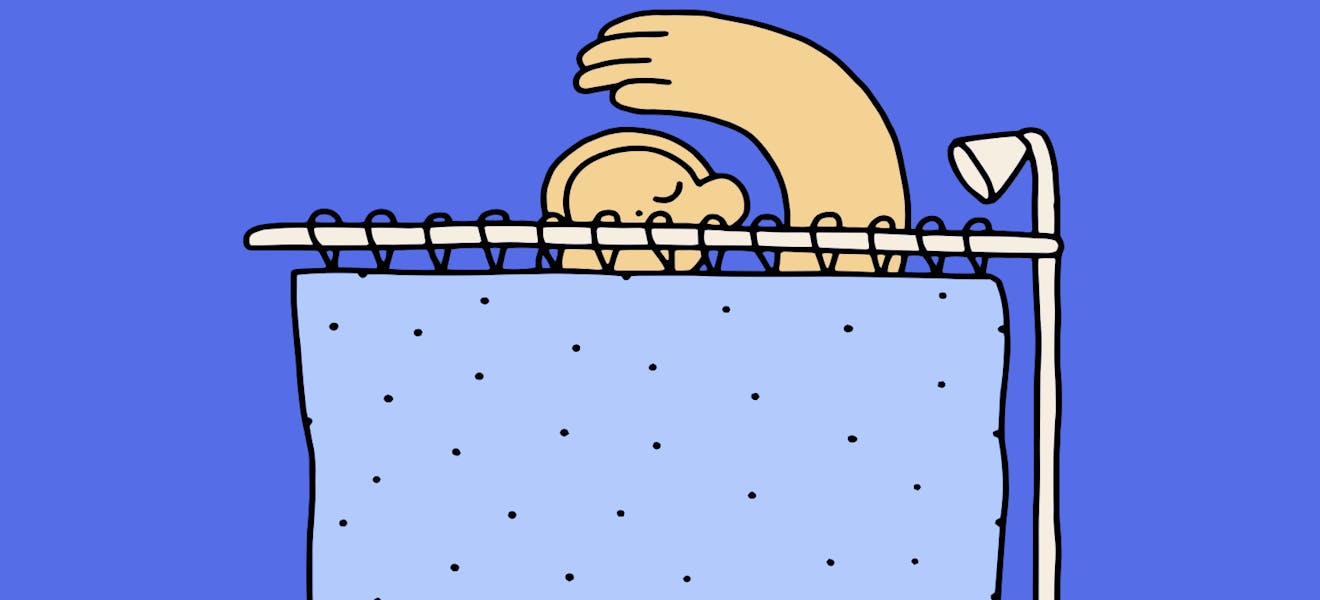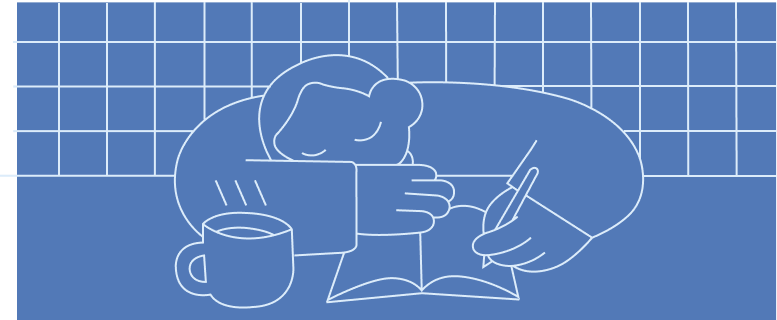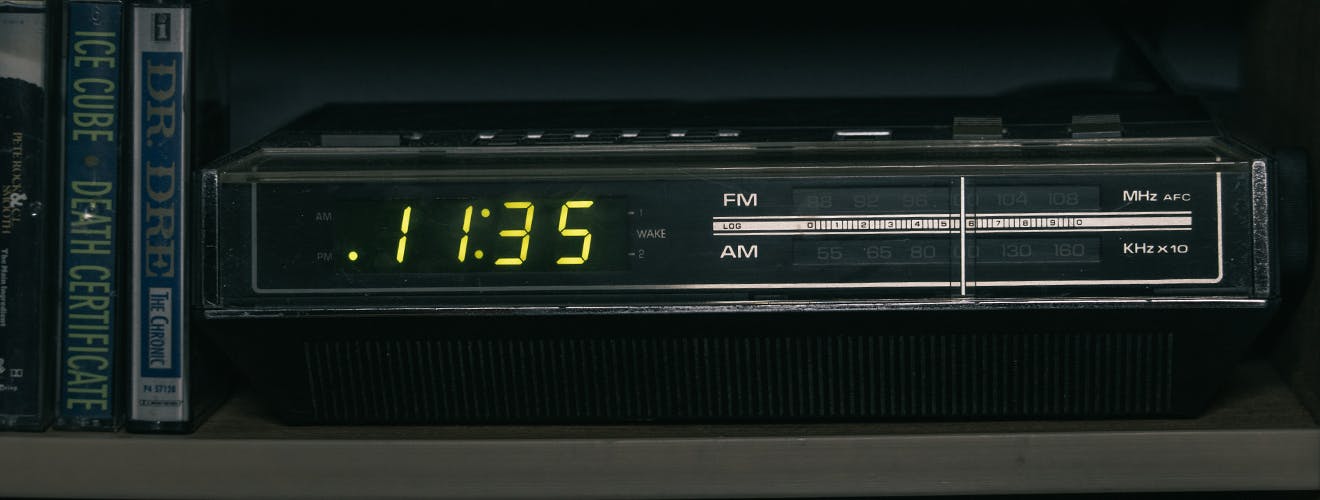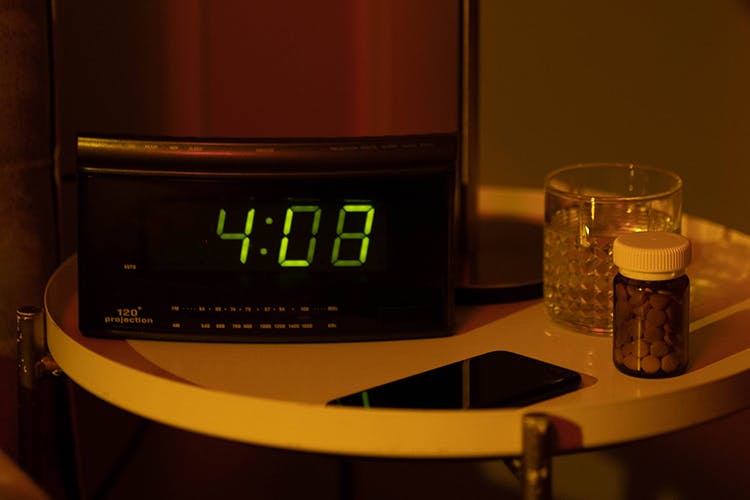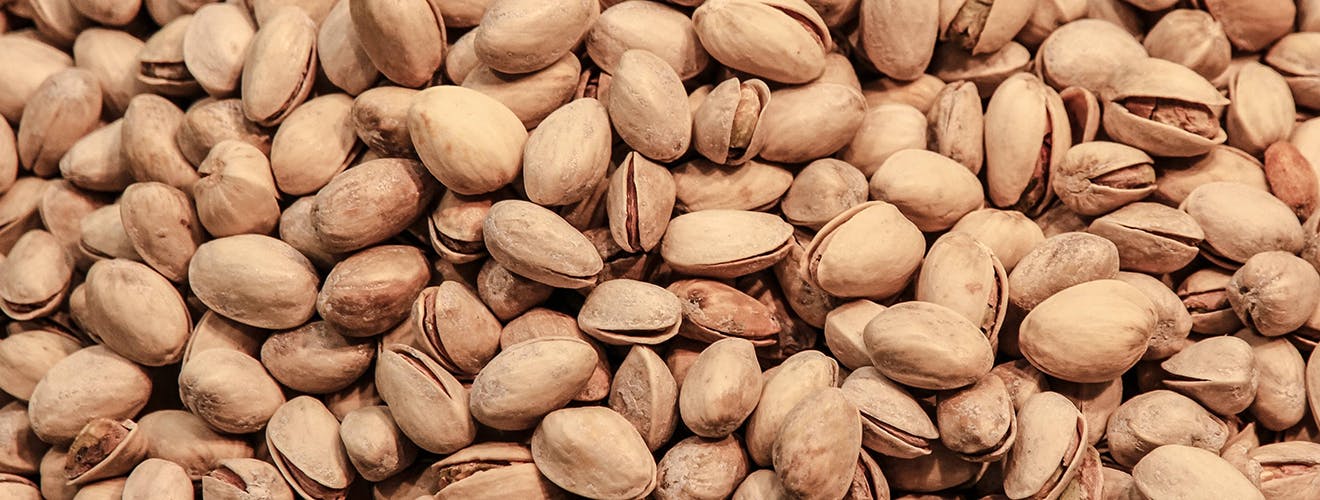Can You Use Magnesium For Sleep?

Magnesium is one of the most common minerals on earth. It's most commonly recognized for helping maintain healthy bone structure, but did you know you could also use magnesium for sleep? Around 30% of the general population over the age of 18 experience insufficient sleep. Different drugs and supplements designed to remedy these issues are brought to market each year, and magnesium has become a rising star in the sleep aid market. Keep reading for more information on how to use magnesium for sleep.
Best Magnesium Supplements For Sleep
Magnesium supplements may be able to provide you with a night of much-needed sleep. However, not all of them will. Due to the laxative effects of most forms of magnesium, some may even cause sleep disturbances. For help falling asleep, stick to supplements that are high in magnesium glycinate and magnesium citrate. We've listed some of our favorites below.
Klean Athlete Klean Magnesium
Klean Athlete features 120 mg of magnesium glycinate per capsule. Every product is GMO-free and formulated without wheat, gluten, or artificial coloring, flavoring, or sweeteners. They are also third-party certified by NSF International, an organization that tests supplements to ensure that they meet specific standards for quality and safety.
Thorne Magnesium CitraMate
Thorne Magnesium contains 135 mg of magnesium per serving, combining magnesium citrate and malate with a dose of calcium for easier absorption. It's one of the products by Thorne Research which has been certified by the Therapeutic Goods Administration that regulates the safety of supplements in Australia.
New Chapter Magnesium + Ashwagandha
New Chapter Magnesium + Ashwagandha combines 325 mg of magnesium oxide and magnesium bisglycinate with 25 mg of organic ashwagandha. While magnesium oxide alone isn't recommended for insomnia, this blend combines with the bioavailable glycinate and the known sleep inducer ashwagandha for best results against your sleep troubles. It is also vegetarian, non-GMO, kosher, and contains no artificial flavors or colors.
Amazon Elements Chelated Magnesium
Amazon Elements Chelated Magnesium features 270 mg of chelated magnesium glycinate. Chelated magnesium is typically more easily absorbed by the body, which helps this product give you your required magnesium needs without risking your gut. It's also free of artificial colors, flavors, and chemical preservatives, and comes with a QR code on the packaging that provides detailed information on the quality, safety, and origin of the ingredients.
Pure Encapsulations Magnesium Citrate
Pure Encapsulations Magnesium Citrate comes with 150 mg of magnesium citrate per capsule and is best for people looking for a lower dosage. Each product is free from wheat, eggs, tree nuts and peanuts, gluten, artificial colors, flavors and sweeteners, coatings and shellacs, GMOs, and unnecessary binders, fillers & preservatives.
Possible Side Effects

We will note that magnesium supplements may cause stomach upset, nausea, vomiting, diarrhea, and other side effects in some people. It may also interact with other medications particularly diuretics, heart medications, and antibiotics.
An excessive dosage of supplements or medications can also cause hypermagnesemia or too much magnesium which is accompanied by lethargy, facial flushing, stomach cramps, vomiting, depression, muscle weakness among others. At worst it can cause an irregular heartbeat, low blood pressure, urine retention, breathing difficulties, and cardiac arrest.
This is most likely to occur when taking certain forms of supplements such as magnesium carbonate, magnesium chloride, magnesium gluconate, and magnesium oxide. If you're experiencing any side effects from taking magnesium supplements for sleep, contact your doctor right away.
So, What Exactly is Magnesium?
Magnesium is a nutrient that your body needs to be healthy, it's one of the 24 essential vitamins and minerals you need to consume regularly to avoid diseases. It's the fourth most abundant mineral in the body and is involved in 300 metabolic processes. Magnesium is involved in energy production, blood pressure regulation, nerve signal transmission, muscle contraction, the whole shebang.
Low levels of magnesium have been associated with a variety of health conditions. This includes Alzheimer's disease, insulin resistance, and type-2 diabetes, hypertension, stroke, migraine headaches, and attention deficit hyperactivity disorder (ADHD).
And Why Does Magnesium Help You Sleep?
The recommended daily intake of magnesium varies between gender and age. For adult men, it is 400 to 420 mg of magnesium. For adult women, it's recommended to get at least 310 to 320 mg of magnesium per day. Meanwhile, for pregnant women, it is recommended to get 350 to 360 mg of magnesium every day.
While you may easily get magnesium from common food and drinks such as vegetables, legumes, nuts, seeds, yogurt, and milk, there are still many Americans that do not get enough daily magnesium intake.
More research is still needed to fully understand the effect of magnesium on sleep behaviors, but what's clear is that magnesium deficiency impacts sleep negatively.
Low levels of magnesium have been associated with muscle weakness and fatigue, as well as depression and anxiety. It has also been associated with poor sleep quality and insomnia, both of which may be caused by anxiety and depression.
Early research also correlates low magnesium levels to restless leg syndrome which causes uncomfortable sensations in the legs and the urge to move them. Restless leg syndrome can be very disruptive to sleep and may cause exhaustion as well as daytime sleepiness.
Research also suggests that dietary magnesium intake may have long-term benefits in reducing daytime falling asleep in women. Magnesium also helps control your body's stress-response system. This happens because magnesium increases Gamma-Aminobutyric Acid (GABA) which is a neurotransmitter that helps boost the mood and induces calm and relaxation.
A high magnesium diet has also been associated with deeper, less interrupted sleep. Meanwhile, another study involving elderly patients suggests that magnesium supplements improve many subjective and objective measures of insomnia, making them sleep faster and longer. They also experienced improved sleep efficiency, a higher concentration of melatonin, and decreased cortisol.
What are the Forms of Magnesium?
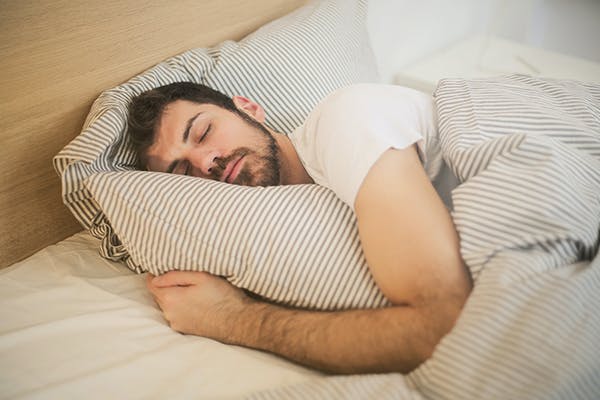
Magnesium comes in many different forms and different kinds of supplements available in the market, but not all of them are good for sleep. Read on to learn more about the different forms of magnesium and which ones to avoid before bed.
Magnesium Glycinate
Magnesium glycinate is formed when combining magnesium and glycine. Glycine is an amino acid known for its health benefits and is usually used standalone to improve sleep and treat inflammatory conditions.
Taken before bed, this supplement may decrease your sleep latency or the amount of time it takes to fall asleep, enhance sleep quality, lessen daytime sleepiness, and improve cognition.
Magnesium Lactate
Magnesium citrate is a form of magnesium bound to citric acid. You can usually find this in citrus fruits, and is one of the most bioavailable forms of magnesium. Magnesium citrate has a natural laxative effect.
This is usually used to clean stool from the intestines prior to surgeries and other bowel procedures. However, unlike magnesium oxide and other forms of magnesium, this laxative effect is much more tolerable, which is why magnesium citrate is also good for sleep.
Magnesium Oxide
Magnesium oxide is a form of salt that combines oxygen and magnesium, usually sold in capsule or powder form. It may be used to treat a variety of conditions such as heartburn, indigestion, constipation, magnesium deficiency, and other ailments.
That said, magnesium oxide isn't usually used to treat magnesium deficiency because reportedly this is poorly absorbed by your digestive tract. It's a stool softener and is less likely to help you with your insomnia.
Magnesium Chloride
Magnesium chloride is a magnesium supplement that may improve blood pressure and diabetes. It's a type of salt that may be found naturally in seawater.
Magnesium Malate
Magnesium malate combines magnesium with malic acid. It is found in many fruits and is believed to be more bioavailable compared to other forms. Like magnesium citrate, this also has laxative effects and may be used to treat bowel conditions. It may also help boost mood, reduce chronic pain, enhance exercise performance, and improve blood sugar control.
Magnesium Taurate
Magnesium taurate is considered the best choice of magnesium supplement for people with cardiovascular issues. This is because it is known to prevent arrhythmias and guard the heart against damage caused by heart attacks. This is formed by magnesium and taurine and is easily absorbed without any laxative properties.
Taurine is an amino acid that has a calming, neuroprotective, and anti-inflammatory effect on the brain. This makes magnesium taurate one of the best forms of magnesium for anxiety next to glycinate.
Magnesium L-Threonate
Magnesium threonate has impressive studies backing its use in mental health problems and has evidence that it can cross the blood-brain barrier. It may help manage certain brain disorders such as depression, anxiety, and age-related memory loss. It is a combination of magnesium and threonic acid which is a water-soluble substance derived from the metabolic breakdown of ascorbic acid or vitamin C.
However, it can be significantly more expensive and may require taking more capsules than other magnesium supplements to reach a sufficient therapeutic dose.
Magnesium Sulfate
Magnesium sulfate is a combination of magnesium, sulfur, and oxygen. It is commonly referred to as Epsom salt. Injection of this compound is used for pediatric acute nephritis and to prevent seizures in severe pre-eclampsia, eclampsia, or toxemia of pregnancy. Topically this may be used in bath water to soothe achy muscles.
-
Magnesium supplementation may be able to help relieve insomnia, anxiety, and depression along with a handful of other health conditions. However, taking a dose of magnesium supplement every night is ultimately no substitute for a healthy diet and sleeping habits. Too much magnesium also comes with adverse effects.
More than that, research on this area is also lacking, and there are many other supplements you can take that are guaranteed to help you sleep better. Other compounds like melatonin and cannabinol have science backing their efficiency in improving sleep quality, and they are completely safe to consume.
Sandland Sleep combined the power of these two to create a sleep supplement that will help you fall asleep faster and longer, without any psychoactive effects or uncomfortable morning afters. Wake up refreshed and ready to take on the day. Formulated with natural, hemp-derived ingredients,Fall Asleep andStay Asleep are supplements that are completely vegan and non-GMO and sure to give you a clean, healthy sleep.
Conclusion
Magnesium supplementation may be able to help relieve insomnia, anxiety, and depression along with a handful of other health conditions. However, taking a dose of magnesium supplement every night is ultimately no substitute for a healthy diet and sleeping habits. Too much magnesium also comes with adverse effects.
More than that, research on this area is also lacking, and there are many other supplements you can take that are guaranteed to help you sleep better. Other compounds like melatonin and cannabinol have science backing their efficiency in improving sleep quality, and they are completely safe to consume.
Sandland Sleep combined the power of these two to create a sleep supplement that will help you fall asleep faster and longer, without any psychoactive effects or uncomfortable morning afters. Wake up refreshed and ready to take on the day. Formulated with natural, hemp-derived ingredients, Fall Asleep and Stay Asleep are supplements that are completely vegan and non-GMO and sure to give you a clean, healthy sleep.
Magnesium glycinate is considered the best form of magnesium for sleep strictly because this form combines magnesium with glycine. Glycine is an amino acid that has sleep-promoting effects and is known to improve sleep quality, decrease sleep latency or the time it takes to fall asleep, and reduce daytime sleepiness.
Magnesium glycinate, hands down. While both magnesium citrate and magnesium glycinate have their benefits, magnesium citrate is best used for constipation due to its laxative effects. Magnesium glycinate, meanwhile, is most helpful for conditions like insomnia, anxiety, stress, and inflammation.
Research suggests that magnesium may help improve sleep quality. You may be able to use magnesium glycinate to help you sleep, but this is no substitute for a good sleep routine. There are also other compounds like melatonin, cannabinol, or valerian that have more research backing them as to their efficacy in inducing sleep.
Magnesium glycinate is the best magnesium for anxiety. It is also recommended for insomnia. This is because of its calming effects as well as its bioavailability or its ability to be easily absorbed by the body. However, the amount of relief depends on the individual. Other magnesium forms that are good for anxiety are taurate, threonate, and malate.
